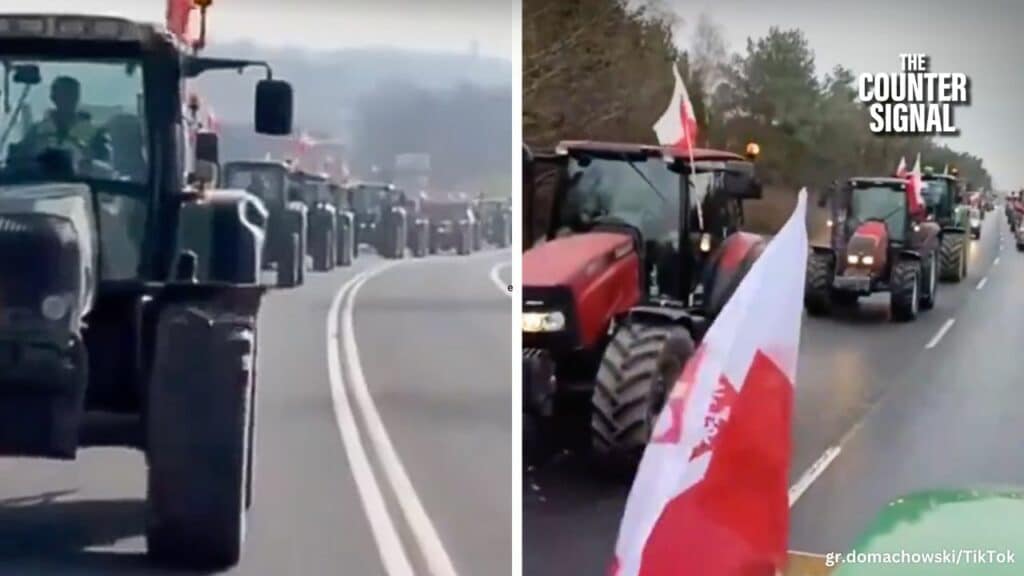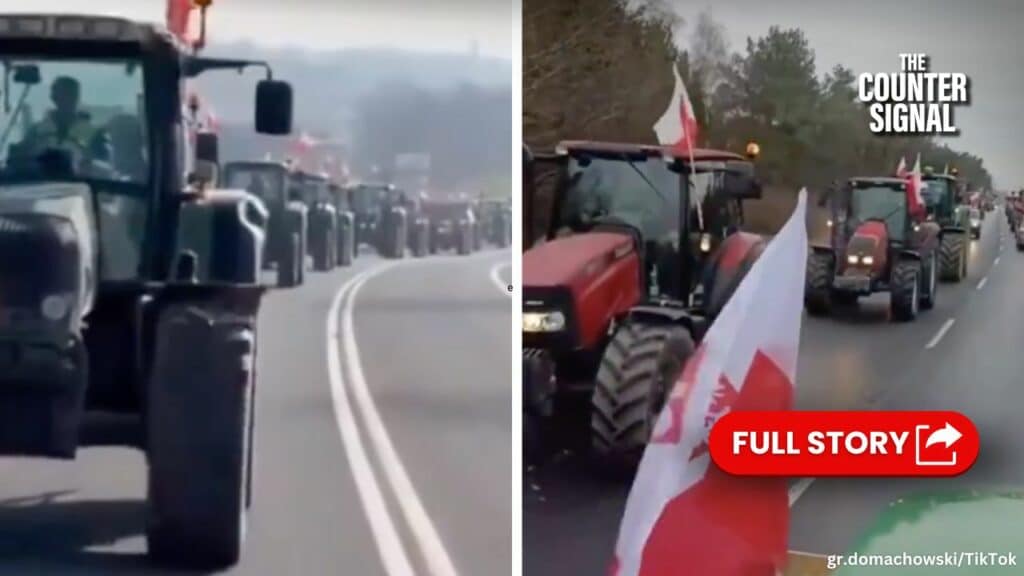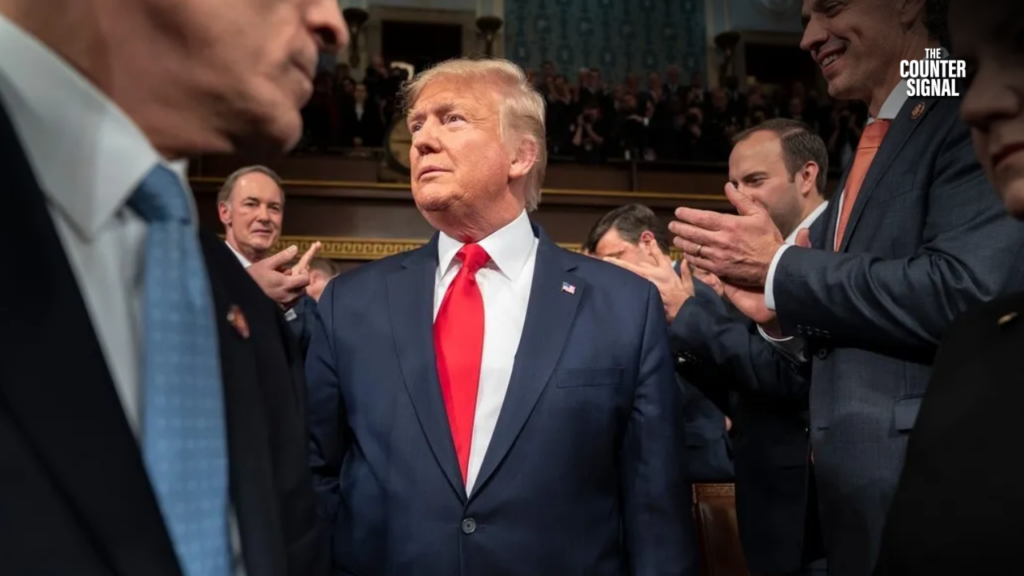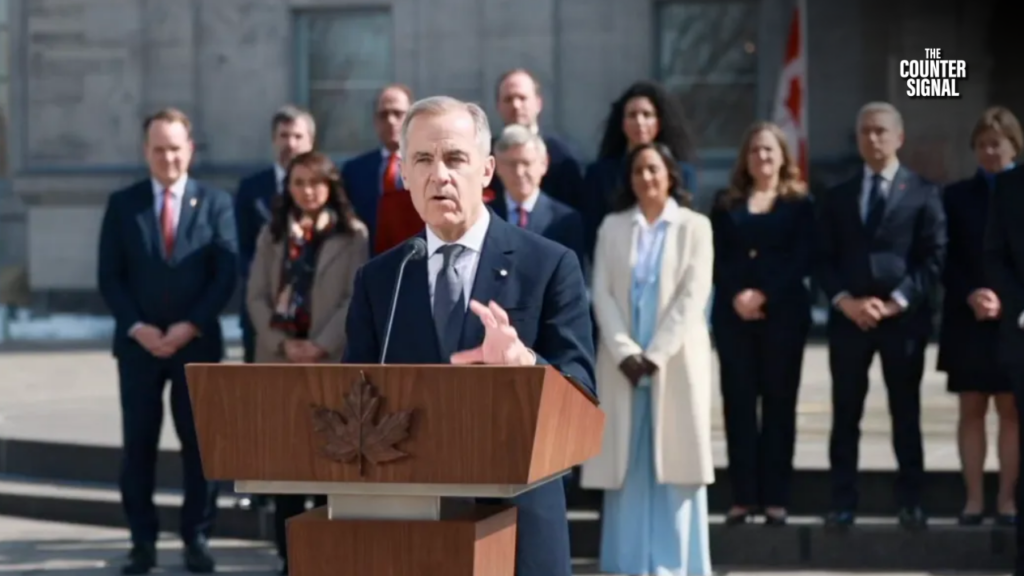Tens of thousands of Polish farmers have shut down the country, blocking hundreds of border crossings in protest of the EU’s policies related to supporting Ukraine.

Polish farmers blocked border crossings with Ukraine, nothing goes through pic.twitter.com/Q8nBi7QibO
— What the media hides. (@narrative_hole) March 20, 2024
Videos show hundreds of tractors lined up on the highways blocking borders with Germany and Ukraine, while also blocking access routes to major cities including Warsaw.
“Throughout the country today more than 580 protests are planned, with nearly 70,000 people estimated to take part,” a police statement read.
The country’s farmer protests started last year in November. They escalated last month where 10,000 farmers protested in Warsaw, and in the south they blocked some border crossings with Slovakia.
Now, they’ve reportedly blocked hundreds of border crossings between them and Ukraine, as well as their shared border with Germany.
According to France 24, the organizers stated “We as farmers will not give up so long as our demands are not fully met.”
Choć zgromadzenie #protestrolnikow zostało zgłoszone na 10 tysięcy osób, rolnicy w rozmowach w mediami mówią, że spodziewają się od 30 do nawet 50 tys. protestujących. @KKojzar 👉 https://t.co/G7EmHg0EFF pic.twitter.com/hLuefbEhgC
— OKO.press (@oko_press) February 27, 2024
What specifically are they protesting?
The Polish economy has been decimated by the war in a few ways. Farmers are fed up with the impacts.
For example, the EU removed tariffs on Ukrainian goods passing through its territory by road to help them out economically, but this has created a surplus of grain in Poland and consequently lowered the cost of food.
Seaborne agriculture trade has been significantly affected by the war as well.
In response to the farmer protests that have been happening across a number of European countries for weeks, the EU is considering changes to the Common Agricultural Policy (CAP). These changes still require negotiation between EU member states and the European Parliament.
More to come…








